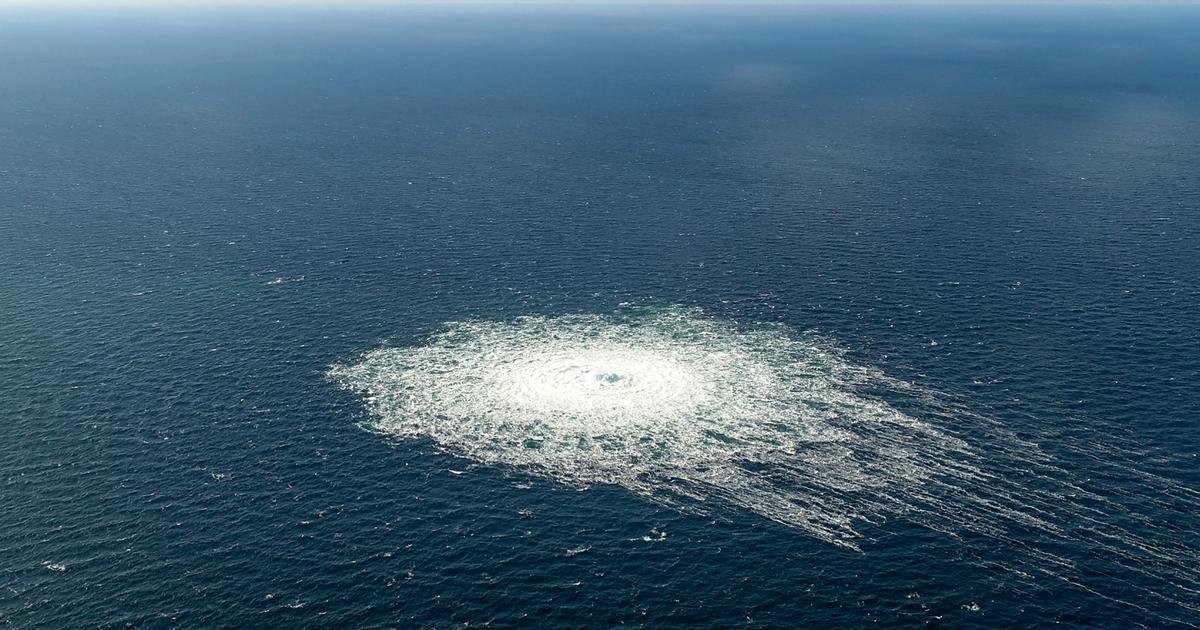A ship working on the construction of the Nord Stream 2 in the Baltic Sea in November 2018.Bernd Wuestneck (AP)
Several leaks detected in the Russian Nord Stream 1 and 2 gas pipelines, which run parallel to the bed of the Baltic Sea between the Russian and German coasts, keep the German authorities and those of Denmark and Sweden, through whose territorial waters they pass, on alert the pipes.
The Danish Directorate General for Energy has declared an emergency in the electricity and gas sectors on Tuesday and has established a security zone as a precautionary measure.
Navigation is restricted in the area.
The cause of the leaks is unknown at this time.
The operator of the gas pipelines, Nord Stream AG, based in Switzerland, has stated that the damage suffered is “unprecedented”.
Although both tubes are closed and not working, they are filled with gas, which must be kept at a constant pressure.
On Monday afternoon, a strange pressure drop was detected in Nord Stream 2, a new gas pipeline with a higher capacity than Nord Stream 1, which Germany failed to start up.
From a usual pressure of 105 bars, it suddenly dropped to seven.
Hours later it was confirmed that there was a leak, located southeast of the Danish island of Bornholm.
During the night of Tuesday, the authorities have detected two more leaks in the Nord Stream 1. This gas pipeline, in operation since 2011, stopped transporting gas at the beginning of September in retaliation by the Government of Vladimir Putin for the European sanctions.
Both pipelines have been at the center of Moscow's energy war with Europe since even before the war in Ukraine began.
Gazprom, the Kremlin's energy arm, has been reducing the amount of gas it sends to the continent via Nord Stream 1 to artificially push up gas prices on the markets and hit Western economies.
Both pipelines are therefore out of service.
The Nord Stream 1 has not been transporting gas for four weeks after Russia alleges an oil leak at the only Russian compressor station that was still operating.
The Nord Stream 2 never came into operation.
Germany suspended its certification last February, days before Russia launched an invasion of Ukraine in response to Putin's recognition of the independence of pro-Russian breakaway regions.
In Berlin, the Ministry of Economy and the Federal Network Agency say they are in constant contact with the authorities of Denmark and Sweden and with the operator of both infrastructures to clarify the matter.
"Currently, we do not know the causes of the pressure drop," the ministry said in a statement.
According to the environmental organization Deutsche Umwelthilfe, leaks in the gas pipeline will not have an excessive impact on the ecosystem of the Baltic Sea.
Natural gas is methane, which partially dissolves in water and is non-toxic, a spokesman said.
The greater the depth of water at which the gas is released, the greater the proportion of greenhouse gas that dissolves in the water, he added.
The Danish energy agency reported that ships can lose buoyancy if they enter the area of the leak and that there is also a risk of ignition, although it specified that the gas only affects the environment in the most immediate area, that is, by where is it coming out
Follow all the international information on
and
, or in
our weekly newsletter
.

/cloudfront-eu-central-1.images.arcpublishing.com/prisa/3FGKMQGIXCPGZWRA7A7IRQNSI4.jpg)







/cloudfront-eu-central-1.images.arcpublishing.com/prisa/KMEYMJKESBAZBE4MRBAM4TGHIQ.jpg)


